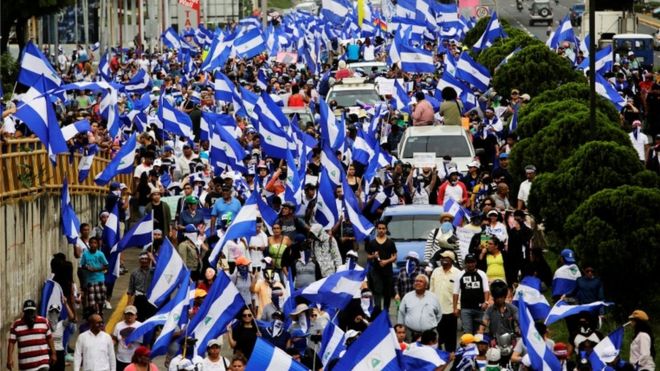He said the deaths of about 300 people during three months of protests were caused by paramilitary groups, during an interview with the US news channel Fox News.
He denied the government had financed the groups and said they were funded by opposition MPs and drug cartels.
Mr Ortega said they had attacked the police during the protests.
He insisted he would continue in office until elections in 2021, defying calls for his resignation.
"To move up the elections would create instability, insecurity and make things worse," the president said.
Daniel Ortega, who was president of Nicaragua between 1979 and 1990 and returned to power in 2007, also denied the government had ordered hospitals not to treat the wounds of anti-government protestors.
He also rejected reports of attacks on Roman Catholic priests, who he said should continue to mediate in stalled peace talks between the protesters and the government.
He qualified the anti-government protests as "terrorism" designed to end his government.
Calm was beginning to return this week, he said, with both pro and anti-government protests taking place peacefully.
President Ortega also accused the US Congress, which is due to pass a motion of censure against Nicaragua this week, of trying to hurt his country's image.
"It has been a campaign of lies, terrible lies to try to destroy the image of Nicaragua and its government." He said.
He made a direct appeal to US President Donald Trump: "We are a small country, with a fragile economy but we deserve respect."
The Inter-American Commission for Human Rights and the UN's High Commission for Human Rights have both accused the Nicaraguan government of serious human rights violations during three months of anti-government disturbances which began in April over social security reforms.
Nicaraguan human rights groups say the authorities are continuing to arrest hundreds of people in a continuing crackdown, and that many of the detainees were seized on suspicion of taking part in the marches.
BBC
More about: Nicaragua
















































